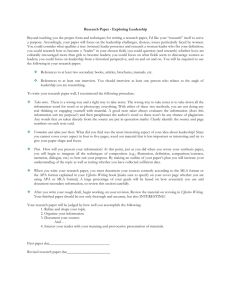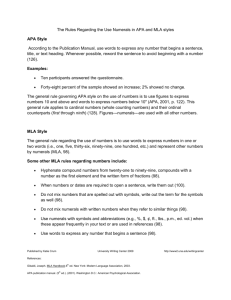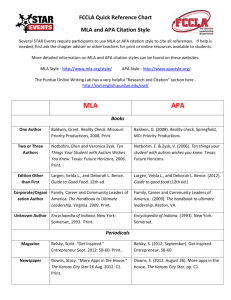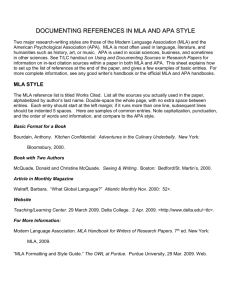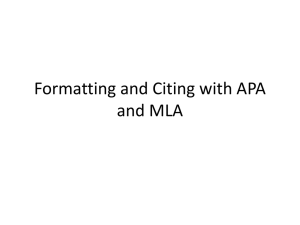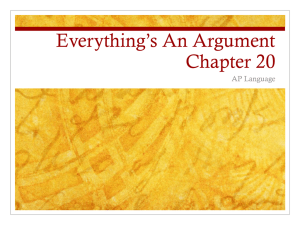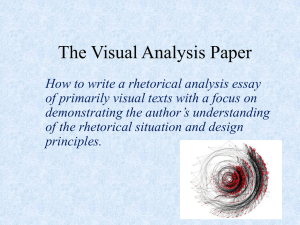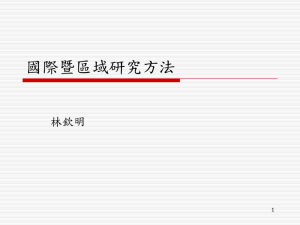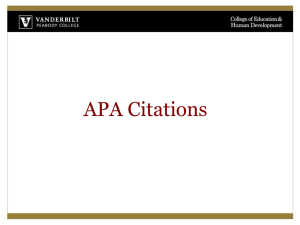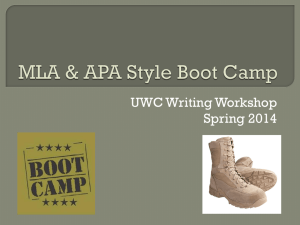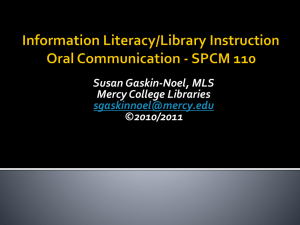Brief Guide to Citing Sources
advertisement
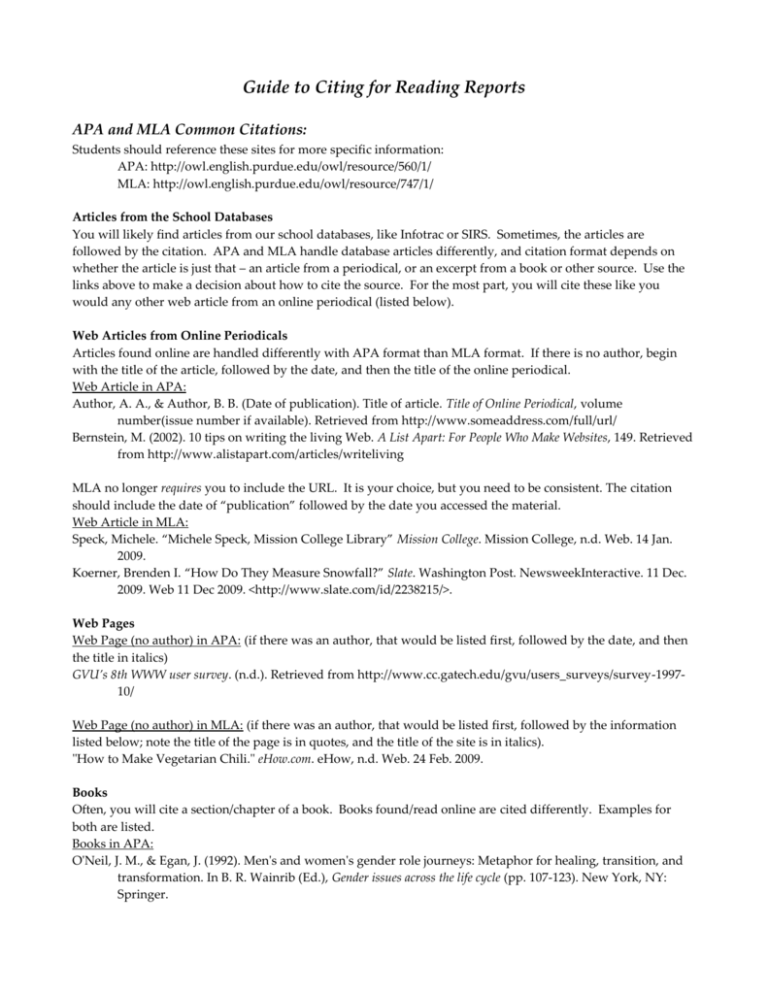
Guide to Citing for Reading Reports APA and MLA Common Citations: Students should reference these sites for more specific information: APA: http://owl.english.purdue.edu/owl/resource/560/1/ MLA: http://owl.english.purdue.edu/owl/resource/747/1/ Articles from the School Databases You will likely find articles from our school databases, like Infotrac or SIRS. Sometimes, the articles are followed by the citation. APA and MLA handle database articles differently, and citation format depends on whether the article is just that – an article from a periodical, or an excerpt from a book or other source. Use the links above to make a decision about how to cite the source. For the most part, you will cite these like you would any other web article from an online periodical (listed below). Web Articles from Online Periodicals Articles found online are handled differently with APA format than MLA format. If there is no author, begin with the title of the article, followed by the date, and then the title of the online periodical. Web Article in APA: Author, A. A., & Author, B. B. (Date of publication). Title of article. Title of Online Periodical, volume number(issue number if available). Retrieved from http://www.someaddress.com/full/url/ Bernstein, M. (2002). 10 tips on writing the living Web. A List Apart: For People Who Make Websites, 149. Retrieved from http://www.alistapart.com/articles/writeliving MLA no longer requires you to include the URL. It is your choice, but you need to be consistent. The citation should include the date of “publication” followed by the date you accessed the material. Web Article in MLA: Speck, Michele. “Michele Speck, Mission College Library” Mission College. Mission College, n.d. Web. 14 Jan. 2009. Koerner, Brenden I. “How Do They Measure Snowfall?” Slate. Washington Post. NewsweekInteractive. 11 Dec. 2009. Web 11 Dec 2009. <http://www.slate.com/id/2238215/>. Web Pages Web Page (no author) in APA: (if there was an author, that would be listed first, followed by the date, and then the title in italics) GVU’s 8th WWW user survey. (n.d.). Retrieved from http://www.cc.gatech.edu/gvu/users_surveys/survey-199710/ Web Page (no author) in MLA: (if there was an author, that would be listed first, followed by the information listed below; note the title of the page is in quotes, and the title of the site is in italics). "How to Make Vegetarian Chili." eHow.com. eHow, n.d. Web. 24 Feb. 2009. Books Often, you will cite a section/chapter of a book. Books found/read online are cited differently. Examples for both are listed. Books in APA: O'Neil, J. M., & Egan, J. (1992). Men's and women's gender role journeys: Metaphor for healing, transition, and transformation. In B. R. Wainrib (Ed.), Gender issues across the life cycle (pp. 107-123). New York, NY: Springer. Engelshcall, R. S. (1997). Module mod_rewrite: URL Rewriting Engine. In Apache HTTP Server Version 1.3 Documentation (Apache modules.) Retrieved from http://httpd.apache.org/docs/1.3/mod/mod_rewrite.html Books in MLA: Carterette, Edward C., and Roger A. Kendall. "Human Music Perception." The Comparative Psychology of Audition: Perceiving Complex Sounds. Ed. Robert J. Dooling and Steward H. Hulse. Hillsdale, NJ: Lawrence Erlbaum Associates, 1989. 120-149. Print. Swift, Jonathan. Gulliver's Travels Into Several Remote Nations of the World. London: George Bell and Sons, 1892. N. pag. Project Gutenberg. Web. 3 August 2009. Interviews and Emails You will be required to include human sources in your Source List. You may have a formal interview with a source, or may exchange an email that provided detailed information. They are cited in the following ways. Interview or Email in APA: (APA doesn’t have a formal way of citing interviews) (E. Robbins, personal communication, January 4, 2001). Interview or Email in MLA: Purdue, Pete. Personal interview. 1 Dec. 2000. Kunka, Andrew. "Re: Modernist Literature." Message to the author. 15 Nov. 2000. E-mail.
